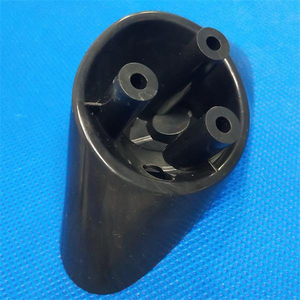Rapid Tooling Injection Molding - TEAM MFG
Rapid prototyping is a process that enables designers to quickly prototype their products by making them available for testing. This procedure is usually carried out in order to improve the quality of products. Rapid prototyping is a process that can help design teams during the product development stage. Due to rapid tooling, parts are produced quickly to be tested and validated before they are sent for production. There are various names for this process, such as prototypes and soft tooling. In this article, we will discuss the various advantages and applications of rapid tooling.
What is Rapid Tooling?
The concept of rapid tooling started in the 1990s when engineers started experimenting with different methods of creating plastic injection molds. Through rapid tooling, a prototype can be made to measure and evaluate before it goes into production. Parts that are produced through this method are usually composed of multiple components. The various components of a rapid tooling design are created using different methods. The parts can be assembled through multiple cycles using the same mold. Although there are many types of rapid tooling methods, each type has its own advantages. For instance, the accuracy of the finished product can vary depending on the material used.
You have to keep the following limitations in mind, too, if you are considering rapid tooling to make your prototype.
1, The mold should be strong
The mold should be strong enough to endure the injection molding process. It should also have a high degree of resistance to the materials.
2, The mold should be smooth
Aside from being strong, the mold should also have a smooth surface to allow the plastic to be injected smoothly. One of the main advantages of rapid tooling is that it uses the exact material used for the final product. This allows you to confirm the exact shape and composition of the parts.
Rapid Tooling Benefits
Here are the other benefits of rapid tooling
1. It provides an opportunity for innovation
Due to the advantages of rapid tooling, it eliminates the need for traditional prototypes. Instead, it allows designers to create complex designs and prototypes that are not possible with traditional methods.
2. Time-saving
This procedure can also be time-saving. It eliminates the need for creating patterns and special tools that were previously used in traditional methods. The results of rapid tooling can be used to test the various aspects of a product, such as its form, function, and overall appearance. Having a fast turnaround can help a company compete in the market.
3. Cost Savings
Another benefit of rapid tooling is its ability to produce high-quality parts. With these components, you can use them for stress testing and impact engineering.
Applications of Rapid Tooling
Due to the advancements in the field of engineering, new applications related to rapid tooling injection molding are expected to emerge.
● The making of molds – both metallic and non-metallic molds can be made through rapid tooling.
The making of casting shapes and cores – SLS application is the latest technology invented in sand casting shapes and cores.
● Other types of components such as marking stamps, arcs, and splintering tools are also made possible through rapid tooling.
● One of the main advantages of rapid tooling is its ability to provide low-cost parts. This procedure can also be used for testing products that are already sold.
Contact TEAM MFG
Contact TEAM MFG to learn more about Rapid Tooling.























